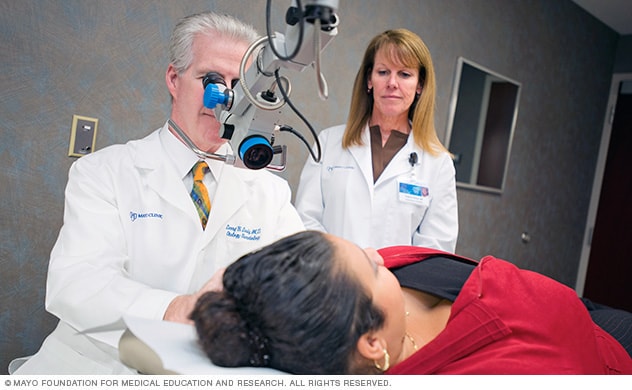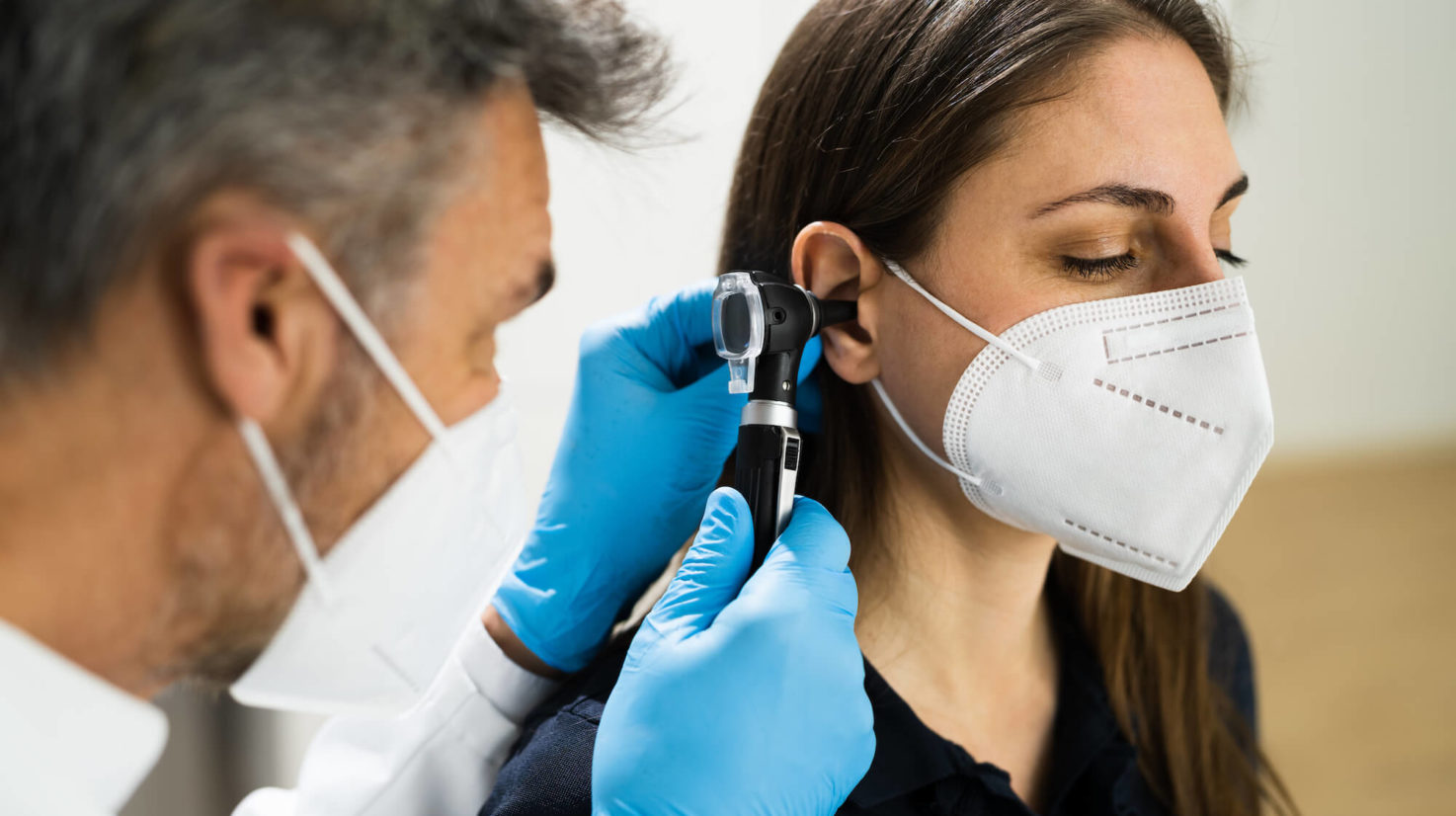Checking out the Field of Otolaryngology: What to Expect When You Speak With an ENT
Otolaryngology, generally described as ENT, incorporates the medical diagnosis and therapy of ear, throat, and nose conditions. For those experiencing relevant issues, consulting an ENT specialist can give clarity and alleviation. Recognizing what to expect during such examinations is essential for reliable interaction and care. This introduction will certainly lay out vital elements of the ENT experience, including common reasons for visits and the processes associated with medical diagnosis and treatment.

Comprehending Otolaryngology: An Introduction
Otolaryngology, often described as ENT (Nose, ear, and throat) medication, is a customized branch of medicine that focuses on the diagnosis and therapy of conditions affecting these vital areas of the human body. This area encompasses a wide variety of disorders, including those pertaining to hearing, equilibrium, breathing feature, and speech. Otolaryngologists are educated to manage both medical and medical therapies, making use of sophisticated strategies and technologies. Their competence extends past standard conditions, addressing problems such as allergies, sinus infections, and hearing loss. Additionally, they play a vital function in the management of head and neck cancers, giving comprehensive care tailored to private person demands. Overall, otolaryngology stays vital for preserving wellness and lifestyle in affected individuals.
Common Factors to See an ENT Expert
Lots of individuals seek the experience of an ENT specialist for a variety of reasons, showing the diverse nature of problems that affect the ear, nose, and throat. Typical problems include persistent sinusitis, which often leads to consistent nasal blockage and facial discomfort. Allergies and their connected signs and symptoms, such as itching and sneezing, likewise trigger check outs to these specialists (Voice). Hearing loss, whether steady or sudden, is one more considerable factor for consultation. In enhancement, people might seek examination for throat conditions, consisting of relentless hoarseness or ingesting difficulties. Rest apnea, identified by interrupted breathing during sleep, is regularly attended to by ENT specialists. Each of these problems highlights the relevance of specialized care in taking care of complex ENT-related health issues
Planning for Your ENT Appointment
When getting ready for an ENT visit, it is vital to gather appropriate information and take into consideration any details issues. Individuals ought to compile a detailed clinical history, consisting of previous ear, nose, or throat issues, surgical procedures, and existing medicines. Recording signs-- such as duration, seriousness, and frequency-- can offer useful insights for the ENT professional. Furthermore, individuals need to prepare a listing of concerns they wish to ask, making sure that all issues are attended to throughout the see. Bringing along any kind of relevant clinical documents or test outcomes can further assist the ENT in recognizing the client's condition. Finally, clients ought to validate their consultation details, consisting of time, date, and place, to lessen any type of last-minute confusion. Proper prep work can boost the efficiency of the consultation and result in far better results.
What to Anticipate Throughout the Examination
As the appointment starts, the client can expect to take part in a comprehensive conversation with the ENT professional about their signs and symptoms and case history. The professional will make inquiries about the period, frequency, and intensity of signs and symptoms such as hearing loss, nasal congestion, or aching throat. Additionally, the individual's previous medical conditions, medicines, and any kind of appropriate family members background will certainly be assessed, aiding the specialist in forming a full understanding of the patient's health. The ENT might also ask regarding lifestyle elements, such as exposure to allergens or toxic irritants. This open dialogue establishes a foundation for the examination, making certain that the client's worries are addressed and setting the phase for any required evaluations or recommendations for therapy.
Analysis Tests and Procedures in Otolaryngology
A variety of diagnostic examinations and my latest blog post procedures are essential in otolaryngology to accurately review and detect problems affecting the throat, nose, and ear. Usual tests consist of audiometry, which determines hearing function, and tympanometry, evaluating middle ear stress. Nasal endoscopy enables visualization of the nasal passages and sinuses, while laryngoscopy takes a look at the throat and singing cables. Imaging methods, such as CT scans and MRIs, supply detailed views of head and neck structures. Allergic reaction testing may additionally be carried out to recognize triggers for sinus or breathing issues. These analysis tools make it possible for ENT professionals to create a thorough understanding of people' conditions, making certain customized and effective management strategies. Proper diagnosis is vital for effective therapy outcomes in otolaryngology.
Treatment Alternatives Used by ENT Specialists
ENT professionals supply a variety of therapy choices tailored to resolve details problems influencing the ear, nose, and throat. These therapies vary from conservative approaches, such as medication and way of life alterations, to even more intrusive treatments. For example, allergic reactions may be handled with antihistamines or immunotherapy, while persistent sinus problems may need nasal corticosteroids or sinus surgical procedure. For hearing loss, ENT professionals typically advise listening devices or medical interventions like cochlear implants. In instances of throat problems, options can include speech therapy or surgeries to get rid of blockages. Furthermore, they might provide assistance for handling rest apnea, consisting of using CPAP tools or medical interventions. Generally, the goal is to boost clients' lifestyle through individualized care and reliable therapy approaches.
When to Look For Follow-Up Care With an ENT
When to seek follow-up treatment with an ENT professional is essential for taking care of ongoing symptoms or complications related to ear, throat, and nose problems, identifying. Clients need to think about scheduling a follow-up consultation if signs linger in spite of initial treatment, such as chronic ear pain, nasal congestion, or throat discomfort. Modifications in hearing, equilibrium concerns, or unusual nasal discharge may additionally necessitate more evaluation. Additionally, if a client experiences negative effects from prescribed drugs or has actually undertaken a procedure, follow-up care is very important to keep track of recuperation and address any kind of concerns. Timely examinations can guarantee effective monitoring of problems, protect against possible issues, and supply assurance regarding one's health. Looking for follow-up treatment promotes proactive wellness management in otolaryngology.
Often Asked Concerns

What Credentials Should I Try to find in an ENT Professional?
When looking for an ENT expert, one need to try to find board accreditation, relevant experience, and solid individual reviews. Additionally, effective communication skills and a thoughtful technique can considerably boost the total treatment experience.
How Do I Choose the Right ENT for My Demands?
Picking the ideal ENT expert involves examining their certifications, experience, and client reviews (Otolaryngology). It is important to contemplate their interaction design and method to treatment, guaranteeing they line up with the person's specific health and wellness demands and preferences
Exist Any Dangers Related To ENT Procedures?
The risks connected with ENT procedures might consist of infection, bleeding, anesthetic difficulties, and possible damages view website to surrounding structures. Individuals need to go over these threats with their physician to recognize specific issues and guarantee informed choices.
Just How Can I Take Care Of Anxiousness Prior To My ENT Consultation?
To manage stress and anxiety prior to a visit, individuals can exercise deep breathing exercises, imagine positive end results, prepare questions ahead of time, and look for assistance from friends or family, cultivating a feeling of confidence and peace.
What Should I Do if I Experience Adverse Effects From Therapy?
The individual needs to immediately report them to their medical care provider if side effects from therapy happen. Changes to therapy or additional interventions may be essential to ensure safety and security and performance in managing their condition - ENT. As the assessment starts, the individual can anticipate to involve in a detailed conversation with the ENT specialist about their signs website link and clinical background. These analysis tools enable ENT experts to create a thorough understanding of clients' problems, ensuring tailored and effective monitoring plans. ENT professionals supply a selection of treatment alternatives customized to attend to particular conditions affecting the nose, ear, and throat. When looking for an ENT professional, one must look for board qualification, pertinent experience, and solid individual testimonials. Choosing the appropriate ENT expert entails assessing their qualifications, experience, and person evaluations